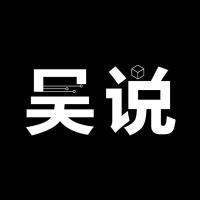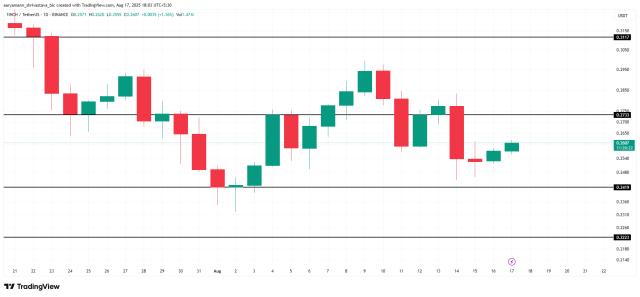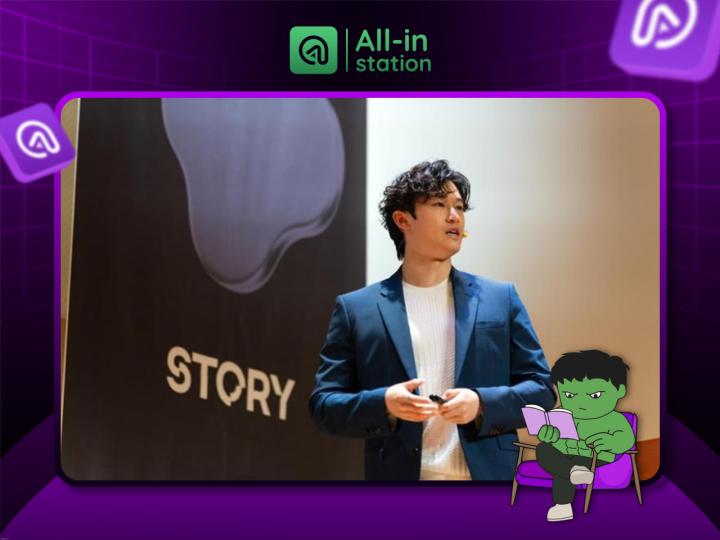Author | Wu Blockchain
Hyperliquid is one of the most successful projects this cycle, with just 11 team members, already capturing over 75% of the decentralized perpetual market. At the time of this publication, Hyperliquid's user asset scale reached approximately $6.2 billion, with the project token HYPE having a market cap of nearly $16 billion and a fully diluted valuation of nearly $46 billion, ranking 13th. Hyperliquid is even considered by the community as potentially being the next Binance.
In this episode, Hyperliquid founder Jeff Yan shared with Wu Blockchain editor Colin the journey and thoughts of building a decentralized trading protocol. He discussed the importance of self-funding, reasons for rejecting venture capital, and the commitment to user-driven growth. Jeff also elaborated on Hyperliquid's vision for the future of decentralized finance, the logic behind not listing tokens on centralized exchanges, and the team's commitment to remaining lean and efficient. He also shared his views on crypto entrepreneurship, crypto industry leadership, and how Western and Eastern cultural values influence his business thinking.
The complete audio and video can be listened to on Xiaoyuzhou and other mainstream domestic and international audio platforms. This article does not constitute any investment advice, and the interviewee's views do not represent Wu Blockchain. Readers are advised to strictly comply with local laws and regulations.
Listen on Xiaoyuzhou:
https://www.xiaoyuzhoufm.com/episodes/68a16e5742cc2798e7f33e12
Listen on Youtube:
Jeff's Background and Entry into the Crypto Field
[The rest of the translation continues in the same professional manner, maintaining the original structure and meaning while translating to English.]However, I believe that if you have the capital and ability to do something, and you truly believe in it, I personally think it's best to avoid diluting overall ownership — because the share of ownership is fixed — rather than diluting it just for short-term benefits. Perhaps, if the community could own more shares, that would be better. In the long run, this is more equitable and fair. These people are the most important part of the network, right?
The Role of Market Makers in Hyperliquid's Development
Colin: Did you collaborate with some market makers in the early stages of Hyperliquid? Would they provide tokens or airdrops? I heard a rumor that some important market makers helped Hyperliquid compete with Binance, is that true?
Jeff: Basically, the answer is no. We didn't have any private arrangements, such as profit-sharing agreements or investments. Some market makers did approach us, as this was common practice at the time.
Many decentralized exchanges would raise funds and obtain funding from market makers. Market makers are also investors who provide liquidity and assistance. But we had no investors and no such arrangements. Our idea has always been that while this might bring some difficulties in the short term, it is the most correct approach in the long run.
Many centralized exchanges have been criticized for their internal funding pools or designated market makers (DMM). I believe it is particularly important for decentralized exchanges to avoid these practices from the beginning. The only exception is HLP, but that is completely different because HLP is owned by the protocol, and any user can deposit into it; it does not belong to any single entity.
Hyperliquid's Core Team and Recruitment Strategy
Colin: How large is Hyperliquid's core team now? What is the internal team atmosphere like?
Jeff: We now have 11 people, roughly half engineers and half non-engineers. The team is small. The overall atmosphere is good; we have been through many difficulties together. I still enjoy working with the team.
I believe we have done many things well, but there are also many areas where we can improve. We are constantly striving to recruit the best people. So, we do not want to remain this small forever, but we are very selective about our partners. I have always believed, or quickly learned, that hiring the wrong person is far worse than not hiring anyone.
Colin: So, will you hire more people in the future? What kind of people are you looking to recruit?
Jeff: We want a bit of everything. It's hard to predict because the future is uncertain, and Hyperliquid itself is still young, but a lot has already changed. Initially, our focus was entirely on becoming a user-friendly, high-performance decentralized perpetual trading exchange. But now our vision is much larger.
Many teams are now developing on the platform, the vision has become more ambitious, and technical complexity is increasing. Therefore, during this transformation, the things people need to do have changed significantly. It's difficult to predict what kind of people the team will need. I can only say we need extremely intelligent, proactive, highly ethical people who are most importantly passionate about what we are building.
(Translation continues in the same manner for the rest of the text)On the other hand, I don't think completely letting go is quite right. I have been actively involved in technical work, almost always aware of everything in the technical aspects. Although it's becoming increasingly difficult, I feel that maintaining this involvement is very important because what Hyperliquid is doing is crucial.
Everything is interconnected — it's a blockchain, and a node software ensures the security of the entire system. If that part becomes chaotic, or if different people work from different perspectives and conflict, it would be very dangerous. Correctness and performance are crucial to the system's expansion.
Leadership Philosophy and the Importance of Team Collaboration
Colin: Many young people or startups are now choosing to enter the AI field. Do you still believe there are many entrepreneurial opportunities in the crypto industry? What advice would you give to these startups?
Jeff: Yes, I think there are many opportunities. If you are very smart, young, and ambitious, AI and crypto are definitely the two most obvious fields. But I do agree with what you said, that some people are not entirely suitable. AI has indeed occupied the spotlight, and there's probably a reason for that. There are many things in the crypto industry that are not so popular, and many irregular things have happened in the past, which still persist today, so I don't blame others for being cautious.
Nevertheless, I believe there are still many things worth building in the crypto field. The key is the perspective. So far, the money earned in the crypto industry has mostly been "predatory" rather than "gain-based". Many things are similar to scams, like creating demand for a certain token and then being able to sell it easily. I find this very regrettable. It gives certain people a lot of power but also attracts those who want to abuse the system. If you look at it from this angle, there's indeed nothing worth building.
But if you look from another perspective, finance is outdated, the infrastructure supporting finance is also outdated, and the only sustainable and effective upgrade method is to rewrite it from scratch, adopting decentralized ownership and control methods, then there are many things to do.
The financial industry itself is very large, and the fintech industry is also very large. They are currently larger and more valuable than the crypto industry. Moreover, I believe crypto can indeed provide the best solutions to these problems. So, I hope that in the next few years, there will be more practical use cases. It seems like a golden opportunity, accompanied by policy changes and the general optimism in the tech field.
I think this industry has a second chance to leave a good impression and build valuable things. Once that happens, it will form a self-reinforcing cycle, and more people will be inspired to build and create more examples. I think that's what this industry really needs.
Jeff's Cultural Background and Its Impact on Hyperliquid
Colin: The next question might be a bit more personal. You don't have to answer if you don't want to. Are your parents Chinese immigrants? Do you speak Chinese?
Jeff: Yes, both my parents are immigrants from China. So I'm a first-generation American, born and raised in the US. I'm kind of a mix of Eastern and Western cultures.
I feel that many values in the East and West are complementary. Looking back now, this might be an important reason for Hyperliquid's success. We combine the strengths of both. I believe American and Western values are crucial to the success of startups, which is why most of the largest startups are in the US. I think as long as the world remains in its current state, this will continue to hold true.
These values include believing that a small team can achieve great things, daring to have big dreams, but also thinking independently, not taking the status quo for granted, but believing that one can change the world. This is a very typical American mindset, and as someone who grew up in the US, I strongly identify with this concept.
I'm not very interested in politics; I just want to get things done, but I find these entrepreneurial values very much in line with me. As for the Eastern part, I don't know much about Chinese history. I think our generation might have a shortcoming of potentially losing some connection with our roots after immigrating to a new country.
So, I feel a bit guilty about this, but I have some understanding of these principles. Traditionally, Chinese values emphasize humility, doing more than talking, and a strong work ethic. These have influenced my way of working and building. Both these Eastern and Western worldviews are very valuable and complementary; that's my view of myself. Well, I can speak some Chinese, but it has indeed regressed because I don't use it much.
Jeff's Gratitude to the Chinese Community and Thoughts on the Crypto Market
Colin: My last question is, can you say a few words to the Chinese community or Chinese fans? They have always been very supportive of Hyperliquid. And a more interesting question — do you think we're still in a bull market? What are your predictions for Bitcoin in this cycle?
Jeff: Thank you for your support, truly appreciate it. I haven't been to China for quite some time, and I feel both close and distant.
It's great to see them become such a large community and provide support. Ultimately, Hyperliquid should not be bound by any boundaries, whether political, national, or anything else. I truly believe in the free market and capitalism, and I believe this is the best way to promote prosperity and drive human progress.
Yes, prosperity is the most apt word. I believe Hyperliquid is an extension of this concept. It's really cool to see people from all over the world supporting it and succeeding by building it, and I hope to continue supporting everyone in this process. As for the bull market, I'm actually not an expert in this area; I have no idea at all.
I've always focused on automated trading, and my focus is on understanding the detailed time frames of the market. My mental model is that it's difficult to make confident predictions over long time frames.
If you think you know, you're probably wrong. I believe the smartest people who can make long-term predictions must do so with a great deal of uncertainty. For example, if you ask Warren Buffett about Coca-Cola's stock in five years, he won't confidently say it will be great. He might just give some vague answers about fundamentals, and so on.
So, this is not my area of expertise, but I don't think it's that important. If your main focus is buying and selling tokens, then bull and bear markets are indeed important. But if you're focused on building, their impact is not so significant. In a way, building during a calmer market is better because there are fewer distractions. This has always been my approach.
Read more, with two previous articles about Jeff attached for reference:
https://www.wublock123.com/index.php?m=content&c=index&a=show&catid=47&id=45857
https://www.wublock123.com/index.php?m=content&c=index&a=show&catid=47&id=34811






